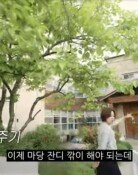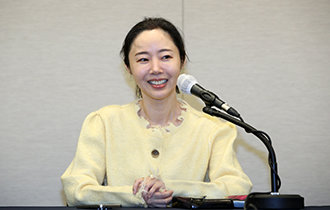Looking for a Place to Stay? Courting the GNP?
Looking for a Place to Stay? Courting the GNP?
Posted November. 29, 2006 06:44,
President Roh Moo-hyun stated on November 27, Hopefully, it (quitting from the party) will not occur, but it may be inevitable.
It was a response to Kim Geun-tae, chairman of the Uri Party, who requested on November 25 at the four-person cabinet meeting, Please decide by December 9 whether you will remain with the party or form a neutral government, and refused a Cheong Wa Dae dinner on November 27. The neutral cabinet would mean that the president would resign from the party, and Kims statement was an indirect request to leave the party, wherein Presidents Rohs answer would mean that quitting the party would be considered.
It is not certain whether President Roh is considering an immediate resignation from the party, but considering the current relationship between the main party and Cheong Wa Dae, experts predict that the relationship with the Uri Party may come to an end.
Cheong Wa Dae, Statement Forced by Uri Party-
President Roh mentioned cutting ties with his party at the Cheong Wa Dae head secretary meting held on November 27, saying, As in the case of Jeon Hyo-suk, a candidate for the Constitutional Court head position, 293 bills are being stalled in the National Assembly, but (the party) is not taking care of these matters. What do they want me to do?
The participants urged him to refrain from making this statement, but President Roh delivered his intention to cut ties with his party at the following cabinet meeting. A source from Cheong Wa Dae said, Kim Geun-tae requested a meeting with Cheong Wa Dae four times, and the issue was whether to form a neutral cabinet. It was an actual challenge to President Roh on whether or not to remain with the party, which was why it was impossible to meet him. The statement reflected that the reason behind the presidents statement lies in Kim.
This source said, Four people including Kim Geun-tae, Uri floor leader Kim Han-gil, Prime Minister Han Myeong-sook, and chief of presidential staff Lee Byung-wan had gathered for a meeting, whereupon Kim requested a decision by December 9 in 10 minutes and left without even sitting down for a meal. What could President Roh have said in this sort of situation?
He added that there is a limit to the president enduring a situation where the Uri Party is applying such pressure.
Cutting Ties with the Party Resulting in Bad Blood between Uri Party and Cheong Wa Dae?-
There is no dissent that the Uri Party would have to prepare themselves even in the instance that the president chooses to resign from the party. The image of pointing the blame to the president, who is in a lame duck position, would not be a favorable one.
But the situation is not likely to occur just as such. Supplementary explanations by Cheong Wa Dae proffer that the presidents resignation from the party statement is due to the forcing by the Uri Party. But the pro-Roh assemblymen in the Uri Party are opposing Rohs resignation.
The issue of the presidents resignation may result in an internal conflict within the party. The pro-Roh assemblymen asked for restraint on the part of the leadership, saying, We hope this fad of attacking the president at the end of each administration will end. One source in the political arena said, It is likely that the relationship between the party and Cheong Wa Dae will result in that President Roh may resign from the party, but the situation is still flexible, and added, But in this current tension, should the president resign, the relationship between the two will be irrevocable, and the circumstances will be altered in an entirely different manner.
Considering a Neutral Cabinet-
The last card that President Roh had been wielding has been used. The political negotiation tactic between the majority and opposition parties and the government was rejected by the Grand National Party (GNP), and the relationship between the party and the president is at a standstill.
It may be due to these circumstances that President Roh is considering giving up his membership in the party and forming a neutral cabinet. But even so the GNP would not acquiesce readily. Recently President Roh said, Whether a neutral cabinet or a national coalition cabinet, I will review whatever is agreed upon by the majority and opposition parties, but GNP rejected his statement, saying, The administration can be managed by employing neutral personnel. No matter what cards President Roh may play, it would be unlikely for him to gain the trust of the political faction.
But some analyze the situation by envisioning that with President Rohs resignation from the party and by showing his eagerness by assembling a neutral cabinet, the GNP may accede to a partial cooperation. The political arena has been quoted saying, Until now, no presidential candidate who was strongly opposed by the president in position had been elected. The GNP candidates would have to keep this in mind.
The Uri Party would now have to discuss reorganizing the political issues from December 9, as requested by Kim. Forecasts predict that movements for reorganization will be launched, including discussions on the participation of the round table discussions for political reorganization that former Prime Minister Goh Kun suggested for mid-December, the issue of whether or not to keep the current party structure, and to remain with the pro-Roh faction.
yongari@donga.com







